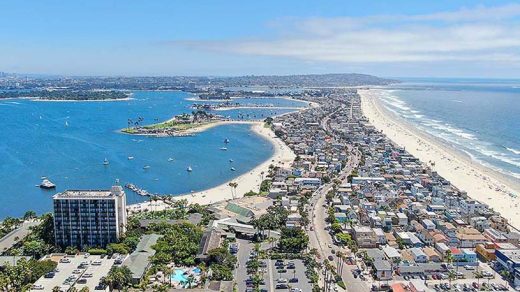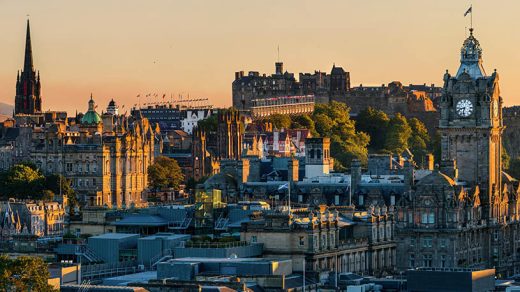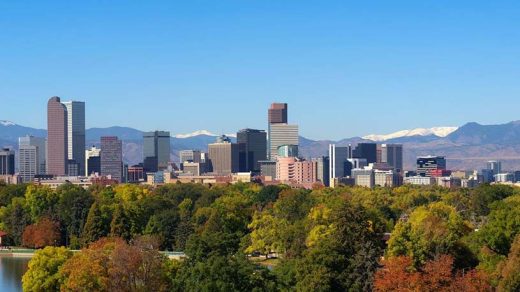Vancouver, located on the west coast of Canada, is a city that is pampered by nature. There are countless hiking and camping sites here. The vast forests, winding mountains and vast lakes make this city a paradise for outdoor enthusiasts.
Whether it is alpine hiking, lakeside camping, or coastline exploration, Vancouver’s outdoor activities allow you to get close to nature and enjoy physical and mental relaxation. Vancouver’s natural scenery is intoxicating, and the changing beauty of the four seasons provides a variety of options for different outdoor activities.
However, the choice of equipment is crucial to preparing for a successful outdoor adventure trip. The right equipment can help you cope with the challenges of Vancouver’s changing weather and terrain, while improving your comfort and safety. Whether it is hiking, camping or other outdoor activities, the right equipment will become your best partner in exploring nature and ensure that you enjoy every moment of your trip.
1. Essential equipment for hiking
1.1 Backpack
One of the most important pieces of equipment for hiking is the backpack. It carries all your necessary items, so the capacity and comfort of the backpack are key considerations when choosing. The choice of backpack will also vary depending on the length and difficulty of the hike.
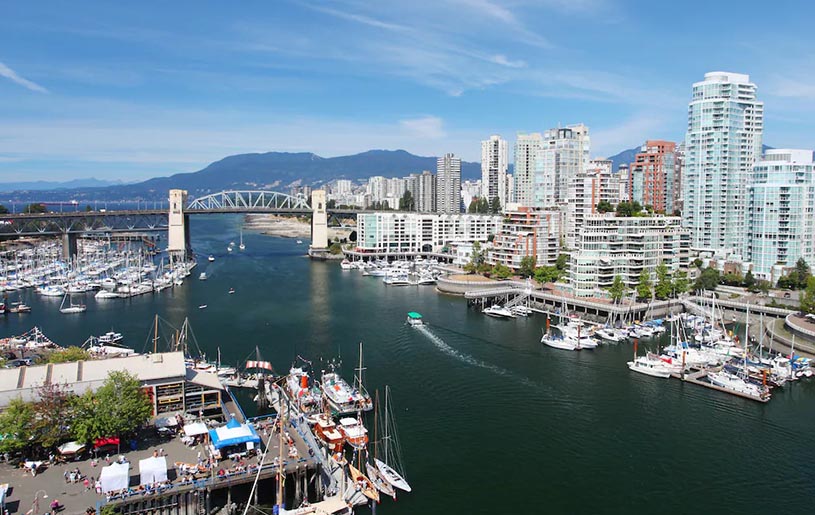
Short hikes: For a day hike, a small backpack of 20-30 liters is recommended. It is large enough to hold water, food, spare clothing and personal items without making you feel overloaded.
Long-distance hikes and camping: If you plan to go on a multi-day hike or camp in the mountains, you will need a larger backpack (50-70 liters). This type of backpack can accommodate more equipment such as tents, sleeping bags, cooking utensils, etc. Make sure the backpack has multiple dividers and adjustment straps to better distribute the weight and improve comfort.
1.2 Hiking shoes
Choosing a pair of suitable hiking shoes is crucial for your hiking trip. The hiking routes in Vancouver have varied terrain, some sections are muddy, and some sections are rocky, so the choice of hiking shoes needs to be determined according to the actual environment.
Comfort: Comfortable hiking shoes can reduce fatigue after long walks, especially on rugged mountain roads. Choose the right insole and upper material to make sure the shoes fit your feet.
Waterproof: Vancouver’s climate is relatively humid, especially in spring and autumn, so waterproof performance is essential. Make sure your shoes are waterproof and keep your feet dry.
Grip: Vancouver’s mountains can sometimes have slippery rocks and muddy trails, so it’s important to choose a pair of shoes with good traction.
1.3 Clothing
Vancouver’s weather is often unpredictable, with a large temperature difference between morning and evening, so choosing the right clothing is key to ensuring comfort.
Layering: Layering is a very suitable way of dressing for Vancouver’s climate. Wear a breathable base layer, a warm middle layer, and a windproof and waterproof outer layer. You can add or remove clothes at any time according to weather changes.
Waterproof jacket: Whether it’s drizzling in spring and autumn or snowy mountains in winter, a waterproof jacket is essential equipment for hiking. Choose a lightweight, waterproof and breathable style that can block wind and keep you comfortable.
Quick-drying clothing: Vancouver’s humidity is heavy, and quick-drying clothing can effectively wick away sweat and keep your body dry. Especially during long hikes, avoid wet clothing that causes your body temperature to drop.
1.4 Water and food
During hiking, replenishing water and energy is crucial. Since some of Vancouver’s hiking trails are located in the mountains far from the city, water sources may be relatively scarce. Therefore, it is necessary to prepare enough water and convenient food.
Water: It is recommended that each person carry about 500ml to 1L of water per hour to ensure that they can replenish water throughout the hike. If there is no water source on the route, it is very necessary to carry extra water bottles or water bags.
Food: Energy replenishment is very important when hiking for a long time. Choose high-energy and easy-to-carry foods such as nuts, energy bars, dried fruits and chocolate. At the same time, some hiking trails in Vancouver have open-air picnic areas, where you can prepare convenient tableware and small cooking utensils to enjoy homemade hot meals on the way.
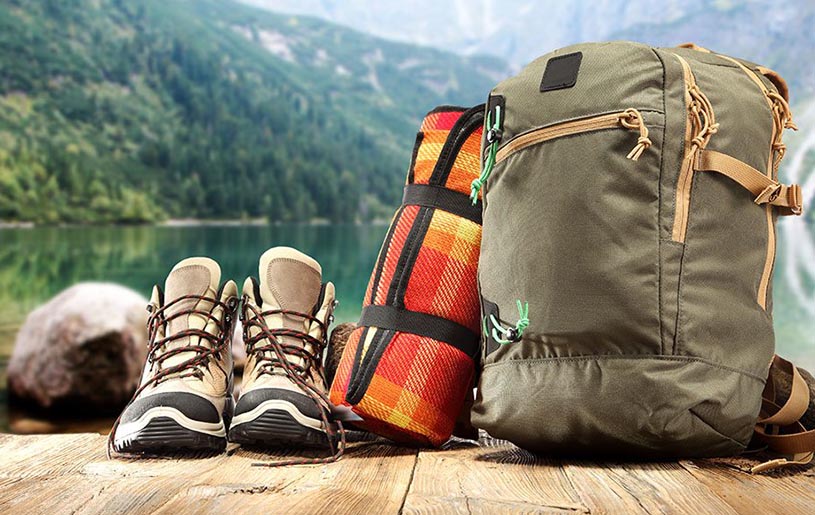
1.5 Navigation tools
Whether you are going to hike around downtown Vancouver or explore the mountains, you need a reliable navigation tool. Although many hiking routes are clearly marked, mobile phone signals may be lost in some remote areas, so it is very important to prepare backup navigation tools.
Maps and guides: Carry a detailed hiking map to understand the starting and ending points of the route and the signs along the way. Especially before hiking, make sure you have a full understanding of the route.
GPS device: If you plan to challenge more remote areas, using a convenient GPS device can ensure that you don’t get lost. Some GPS devices have detailed maps and tracking functions, which can help you locate in real time.
Smart watch: Some smart watches have functions such as GPS, barometric altimeter and weather forecast, which are very useful for navigation and weather change monitoring during hiking.
2. Essential camping equipment
2.1 Camping tent
The camping tent is one of the most critical equipment for camping. The mountain climate in Vancouver often changes rapidly, so it is important to choose a tent that is windproof, waterproof and breathable.
Capacity: Choose a suitable tent according to the number of people you are camping. If you are camping alone, you can choose a small tent; if you are camping with multiple people, you need to choose a larger tent.
Waterproofness: Make sure the outer layer of the tent is made of waterproof material to withstand the occasional rain and snow in Vancouver. At the same time, the bottom of the tent should have a waterproof layer to prevent dew from penetrating.
Ventilation: Camping sites are often in natural environments. Choosing a tent with a good ventilation system can avoid excessive moisture and ensure comfortable sleep.
2.2 Sleeping Bags and Sleeping Pads
Good sleep quality is essential for the next day’s hike, so choosing sleeping bags and sleeping pads that are suitable for the season and climate is the basis of camping.
Sleeping Bags: Choose sleeping bags that are suitable for the Vancouver camping season. If you are camping in summer, a light and breathable sleeping bag will do; if it is spring and autumn, choose a sleeping bag suitable for low temperatures to ensure that you stay warm at night.
Sleeping Pads: Sleeping pads mainly play the role of isolating the cold ground. In cold seasons, foam or inflatable sleeping pads have better insulation effects and can effectively improve sleep comfort.
2.3 Cooking Utensils and Tableware
Vancouver’s camping sites are often far away from the city, so it is necessary to cook by yourself. Choosing lightweight and fully functional cooking utensils allows you to enjoy delicious hot meals in the wild.
Stoves: Convenient small stoves can help you quickly heat food or water in the wild. Choose stoves that are easy to operate and efficient to avoid wasting time due to equipment problems.
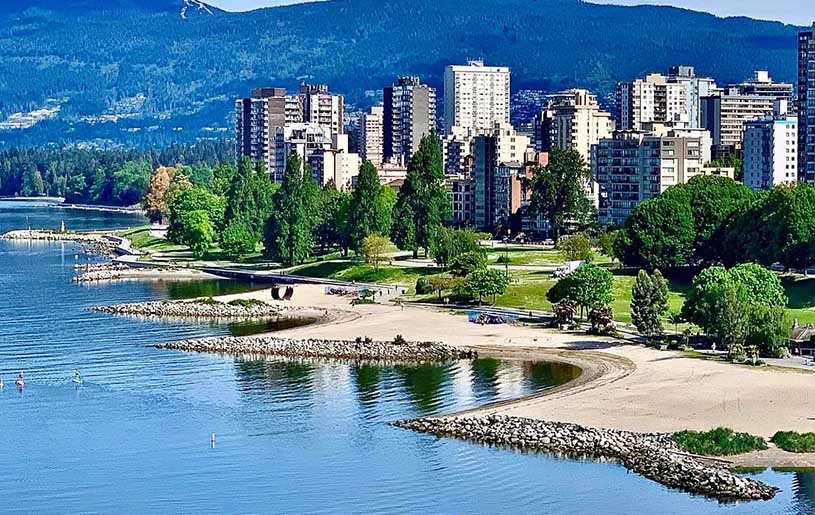
Cooking Utensils: Choosing lightweight cooking utensils, such as pots, bowls, tableware, etc., can make your camping life easier and more enjoyable.
Food storage: Make sure you have containers that are suitable for storing food to prevent it from being disturbed by animals or spoiling.
2.4 Lighting and batteries
There is no power supply at the campsite, so it is necessary to prepare appropriate lighting equipment. Whether it is setting up a tent at night, cooking or night activities, the right lighting tools can provide a sense of security.
Headlamp: A headlamp can free your hands and is particularly useful when camping. Choose a durable headlamp with multiple brightness adjustments to ensure that you can clearly see the surrounding environment in any conditions.
Camp lights: Camp lights are suitable for illuminating the camping area, especially for evening gatherings or socializing. Make sure to choose lights that are rechargeable or use long-lasting batteries.
3. Things to note about hiking and camping in Vancouver
3.1 Understand the weather and geography
Vancouver’s climate is changeable, and the weather in the mountains is particularly unpredictable. Before setting off, be sure to check the weather forecast and be prepared for sudden rain or temperature drops.
3.2 Comply with the “Leave No Trace” principle
As a visitor to Vancouver, it is the responsibility of every outdoor enthusiast to respect the natural environment. When hiking and camping, try to minimize the impact on the environment. Carry a garbage bag and take the garbage away to avoid damaging the ecological environment.
3.3 Safety and First Aid
Whether hiking or camping, it is very necessary to carry a basic first aid kit. Common outdoor first aid items include Band-Aids, disinfectants, bandages, hemostatic packs, mosquito bite ointments, etc., to ensure that you can deal with emergencies.
Vancouver’s natural scenery makes it an ideal outdoor destination, but only well-prepared equipment can ensure that you can enjoy this beautiful natural world. From hiking backpacks to camping tents, from hiking shoes to cooking utensils, the choice of every piece of equipment is crucial. Choose the right equipment according to the season, route and personal needs to ensure that you are safe and comfortable during your adventure.
